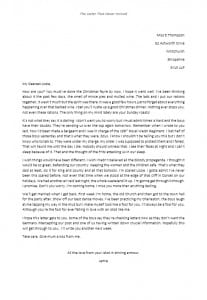It’s hard to pin down exactly what I want to do as I have differnt ideas for the same subject and certain elements that I like but aren’t strong enough to hold themselves as a show. To put them all together the show would feel disjointed like puzzle pieces put together badly.
I stopped and asked myself:
What do I want to perform? – Something I’m interested in or passionate about. I want to take something that is personal to me and share this. It’s letting down the barriers and allowing them to see the person I am.
What do I want to include in my performance? – My love of music. There isn’t a day that goes by in my life without it. Even now as I write this I have Green Day’s new album playing in the background.
What do I want to achieve or gain from this performance? – Something I have enjoyed creating and feel proud of. I want this to be a piece I look back on in the future and say I’m glad I did that.
When thinking about what I want to do in the future. It brought me back to this idea of when you’re a child and what do you want to be when you grow up? Apart from it changing every week from a RAF Pilot and a firefighter. Something that always reoccured was a performer.
A lot of my life is spent looking up to these musicians as inspiration and idols. I spend my spare time performing in my room with my guitar, piano or drum kit. I am alway imitating these performers whether it be through singing their songs or learning the chords to a new album.
Whilst watching interviews with these successful musicans I often hear how they spent their early carrier playing small venues for little money and taking whatever chance they can get to perform in front of a crowd, most commonly busking is where they plant their roots.
I have often debated busking myself. I wouldn’t say it would be for the money but the oppourtunity to perform. It’s something I love doing and I want to share it with others. However something seems incredibly daunting about taking my guitar to the middle of the highstreet in Lincoln and starting to sing in a crowd of strangers. Busking I believe is incredibly brave because at a venue then people have come to hear music, in the middle of the highstreet there’s this vulnerability and knowing that some people will not enjoy it.
For my show I have been debating with this idea of the journey to success in this industry. I currently have two interpretations of the same idea which hold the same material and I would perform songs with my guitar but the outcome would be different.
The main source material I will be using is real life accounts of how musicians got to where they are today. I would incorporate these real accounts of musicians and how they achieved their success or what struggles the came through to achieve this goal. I took inspiration from Ed Sheeran’s new album and in particulary the song Eraser. I find it incredibly interesting how his opinion on this lifestyle is told.
The lyrics that stuck out most to me were:
“I used to think that nothing could be better than touring the world with my songs. I chased the picture perfect life, I think they painted it wrong”. “And ain’t nobody want to see you down in the dumps because you’re living your dream and this should be fun”
FIRST INTERPRETATION: I would start in a dressing room and I would be getting read to go and perform in a huge arena, one of the milestone venues for the UK is Wembly Stadium in London which holds a capacity of 90,000. I would then begin to tell the audience this journey from Busker, to local venues, to radio performance, to first album release, then first UK tour and so on. The accounts would be moments in an episodic like structure where I give both good and bad examples of this sort of lifestyle that is so desirible.
SECOND INTERPRETATION: A Busker’s Dream and as they’re stood on the side of the street while people go by they have this dream they want to achieve. They want to be like such and such in the charts or who can say their job is flying around the world touring and spending their days performing. The accounts from real musicians would be the busker saying ‘I’m going to do it this way’ or having doubts about themselves.I like this idea of dreams and when do dreams stop being dreams and become reality or should they stay as dreams? Is it just the chosen few who achieve this lifestyle and why is it so desireable.


